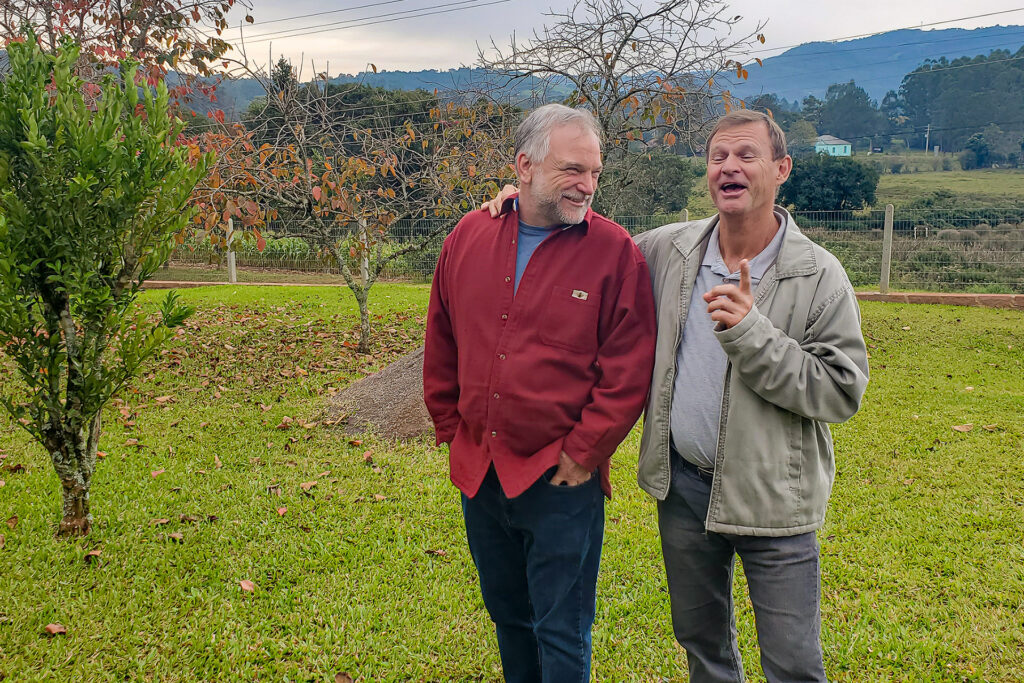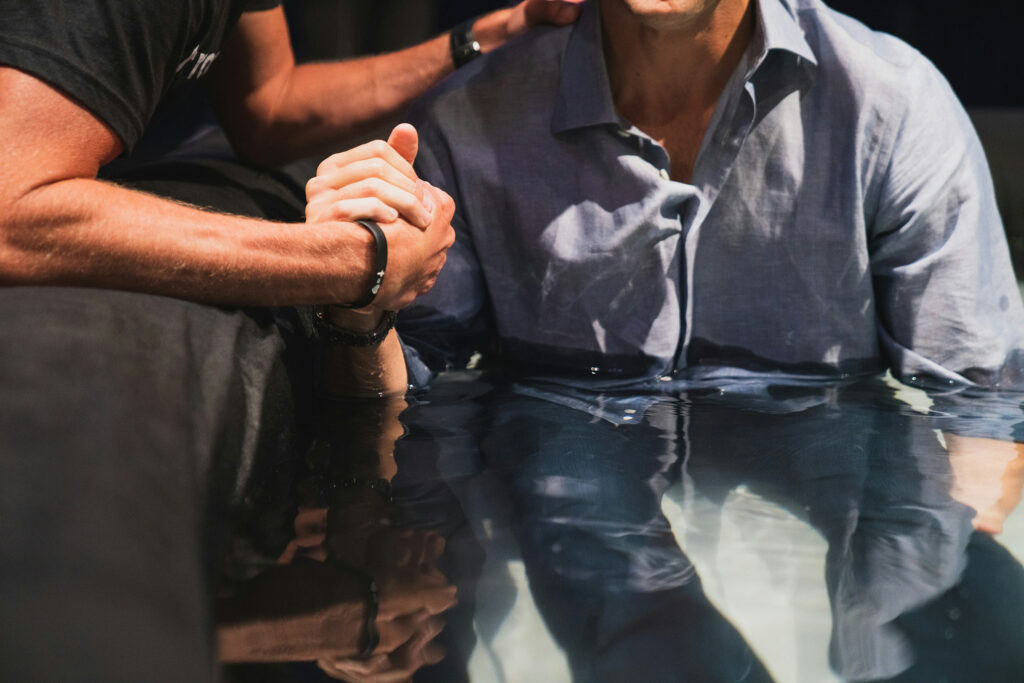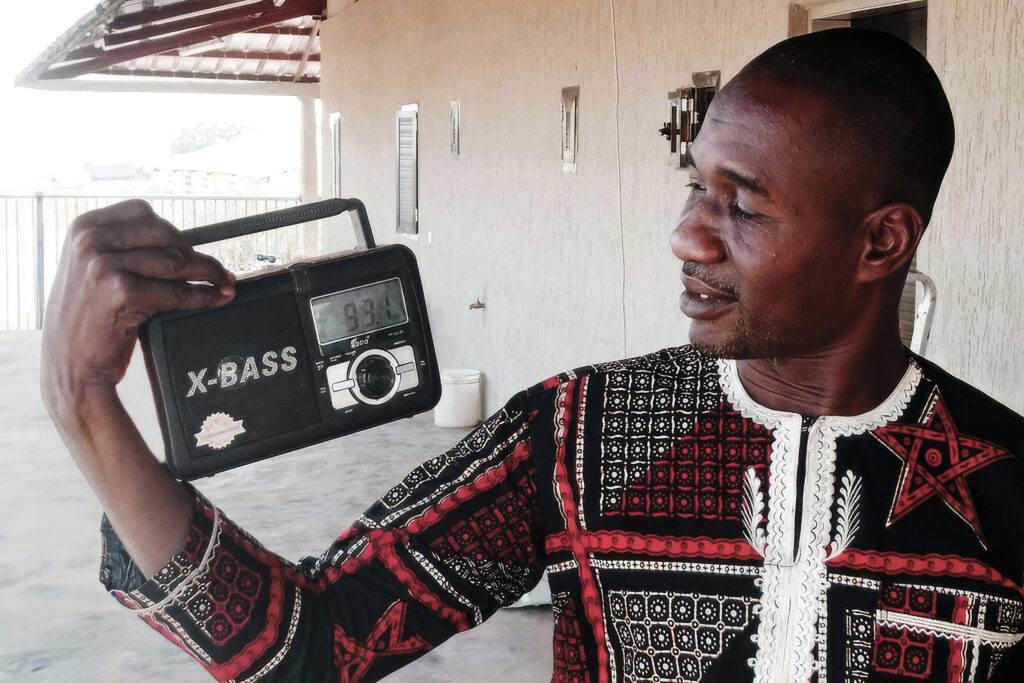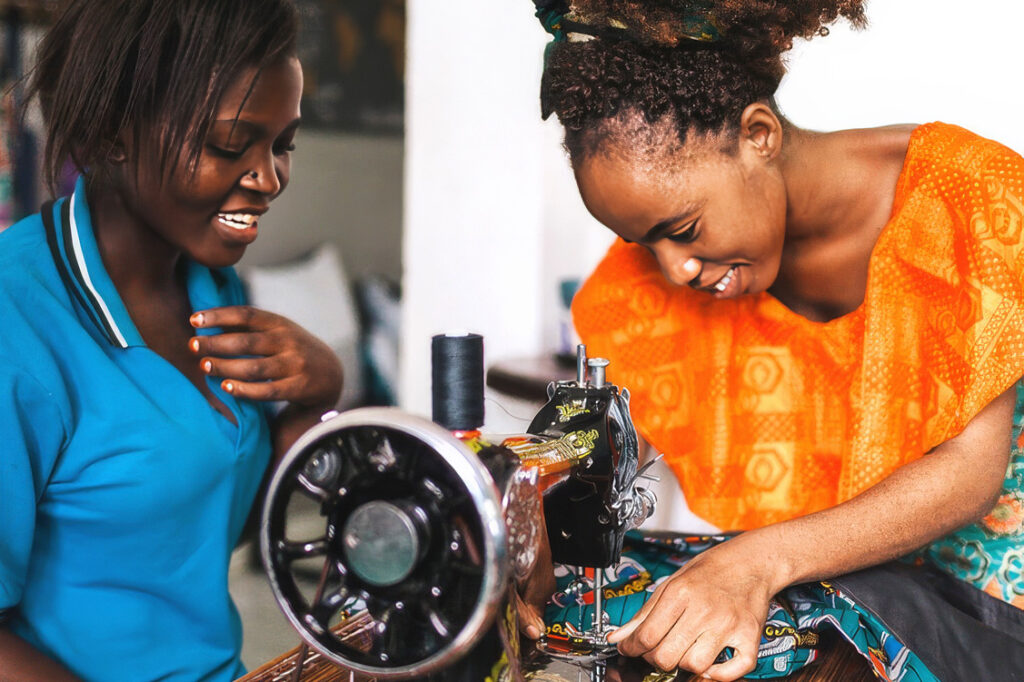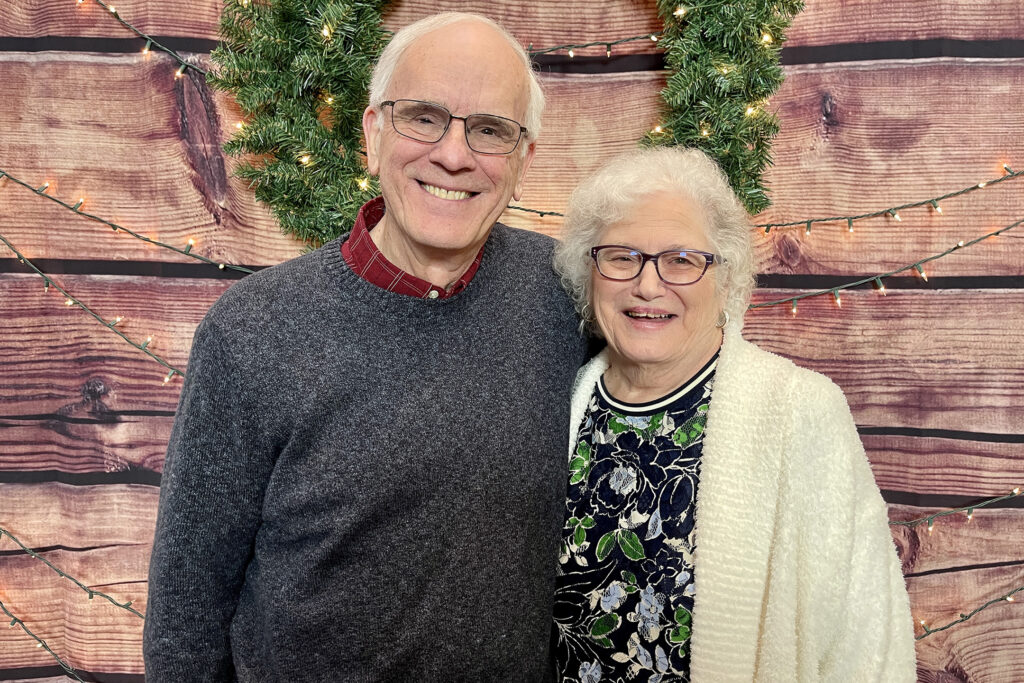“I didn’t know if tomorrow it would be me.”
The sudden, brutal deaths of his colleagues haunted Lehman as he and his wife, Adriana, swiftly packed their essential belongings. Despite his success as a member of the security forces, he feared falling under concocted suspicion of treason amid Venezuela’s socialist regime. Unsure if he would be the next to be killed, Lehman fled across the border to Brazil with Adriana and their small children.
Their initial stay in a refugee camp brought more danger. With thousands of Venezuelans awaiting documentation in northern Brazil, camps lacked sanitation, medical care, and privacy. Lehman’s family shared a cramped room with another family and later moved to a roofless plastic shed under the scorching sun. Despite her vigilance, Adriana was caught in a robbery while buying groceries and attacked, wounding her hand.
As hostility in the camp increased, a Venezuelan friend urged Lehman to request UN assistance to move to Rio Grande do Sul, the southernmost state in Brazil. A few weeks later, Lehman and his family arrived in the town of Dois Irmãos.
“It was very difficult,” Lehman recalled. “I was unemployed, unable to use my profession.”
The struggle of rebuilding life in a new language, culture, and climate prompted Lehman to consider deeper changes within himself.
“In Venezuela, I had another life, but that good life required that I be very far from God,” he explained. “I did many things that went against the laws of God—harming people, earning money improperly. I thought I was taking care of my family, but it wasn’t so. In Venezuela, I always looked for God, but I was very busy, or I left God to the side and went to drink alcohol or went out with my wife. But when we got here, I tried to find God.”
Lehman asked a neighbor if he attended church and immediately accepted the neighbor’s invitation to join him. The neighbor later introduced him to his brother, Chico, a founding member of the ABWE church plant in Dois Irmãos. Soon after, the Brazilian pastor, Diego, arrived at Lehman’s door with a bag of food and an offer of clothing and blankets from the church.
“When the COVID crisis began, Diego and I went to the city council and said, ‘Is there anything we can do to help?’” said ABWE Regional Director Randy Richner. “They told us about this group of about 100 Venezuelans that came here promised jobs. But because of COVID, all those jobs closed, and they had great physical needs. So we distributed three tons of food.”
Randy offered Lehman a job renovating ABWE’s Sítio da Esperança retreat center—which would provide additional facilities for ministry and later assist missionaries Benjamin and Tatiana Candee in planting a new church. Due to COVID lockdowns, Lehman stayed alone on the property, dedicating his evenings to a discipleship Bible study with Randy via Zoom.
“Being with Christians and learning the Word was changing my life,” he said. “I wanted to leave the Lehman from the past indeed in the past.”
Lehman trusted Christ, and soon after, Adriana was also saved through a Bible study with Randy’s wife, Cindy. They were the first new believers baptized in the Dois Irmãos church plant.
In 2022, desiring better opportunities for his family, Lehman left Brazil to find work in the US. Against the recommendation of the church, he flew to Venezuela and traveled on foot through the perilous jungles of Central America, intending to enter the US illegally.
“When we knew that he was determined to go, we gave him water filters and other supplies to help keep him alive,” reported ABWE missionaries Rob and Lin Wachter. “Later, Lehman said several people died along the way.”
Arriving at America’s doorstep, Lehman was repeatedly denied entry and finally understood his church’s warning.
“I have to let myself be led by God, not my desires,” he explained. “I have to let God work . . . to trust him and keep my family together and in fellowship with the church.”
The Least Evangelized State in Brazil
In the diverse region of southern Brazil, the ABWE team and their national partners have committed to the long work of disciple making—cultivating relationships, sharing the gospel, and planting churches among the many people groups in their state.
“Most people think that Brazil is a reached country, but there are still several regions that are very closed to the gospel,” said Randy. “Rio Grande do Sul is the least evangelized state in Brazil.”
“Most people think that Brazil is a reached country, but there are still several regions that are very closed to the gospel. Rio Grande do Sul is the least evangelized state in Brazil.”
Randy Richner
Populated by German and Italian immigrants in the 1800s, southern Brazil retains a strong European influence, which, combined with the proud gaúcho heritage of traditional ranchers and cattle herders, has produced a culture distinct from the rest of Brazil. The religions of the region create unique challenges for evangelism; cultural Catholics or Lutherans often lack a true understanding of the gospel, non-religious persons adamantly promote a secular worldview, and spiritists practicing Afro-Brazilian religions are tempted to place Jesus as another idol on their shelf.
“We have to think through how we present Jesus to each person in a way that makes sense in their context,” explained Lucas Bair, ABWE team leader. “We can’t just open a church building and expect people to come—we need to develop relationships, to gain respect and trust by being a blessing to the community.”
From Community Outreach to Church Planting
Part of the team has focused its efforts on the Hunsrik people group, an under-reached population of five million, of whom only 1.5 percent are evangelical. Living primarily in mountain towns of southern Brazil and speaking an unwritten German dialect, many Hunsriks have a strong sense of independence and dedication to traditional religion that creates resistance to the gospel.
“The Lord brought contacts to our field team who are Hunsrik believers,” shared Lucas.
Partnering with these couples burdened for their communities, the team launched two Bible studies in short succession: one in Ivoti in 2010 and, a few months later, another in neighboring Dois Irmãos. As new members trusted Christ and began learning God’s Word, both groups expanded, and the Ivoti study grew into a church plant in 2011.
Fritz, a Hunsrik farmer who dedicated his life to sharing the gospel with his family and neighbors while praying fervently for help in ministry, was the impetus for the new church.
“He came to my wife and me and said, ‘Can you come help us plant a church in my city?’” recalled Randy.
While the new church plant initially generated interest, and some turned to Christ, the small group soon faced opposition—even from close relatives of church members.
“But God gave us wisdom, he gave us strength, he gave us perseverance—and praise God, a church was born,” said Randy.
With help from supporters in the US, the church purchased a building and continued to develop healthily. In 2020, ABWE team members returned to the Dois Irmãos Bible study to transition it also into a church plant.
From the beginning, the Bible study had met in Chico and Neu’s home, both noted for their deep roots in their community and evangelistic zeal—not only for their Hunsrik neighbors but for other people groups, including the Venezuelan refugees who arrived after the church’s founding.
“We’ve seen some wonderful fruit, and so much of that fruit comes from Chico and Neu’s contacts,” said Randy.
To further build trust in the community and make contacts to share the gospel, the team prioritizes ministry to the whole person. ABWE missionaries Rob and Lin Wachter and Joel and Megan Richner teach courses in English as a Second Language and host game nights and youth events. Another ministry offers free chiropractic care every Monday.
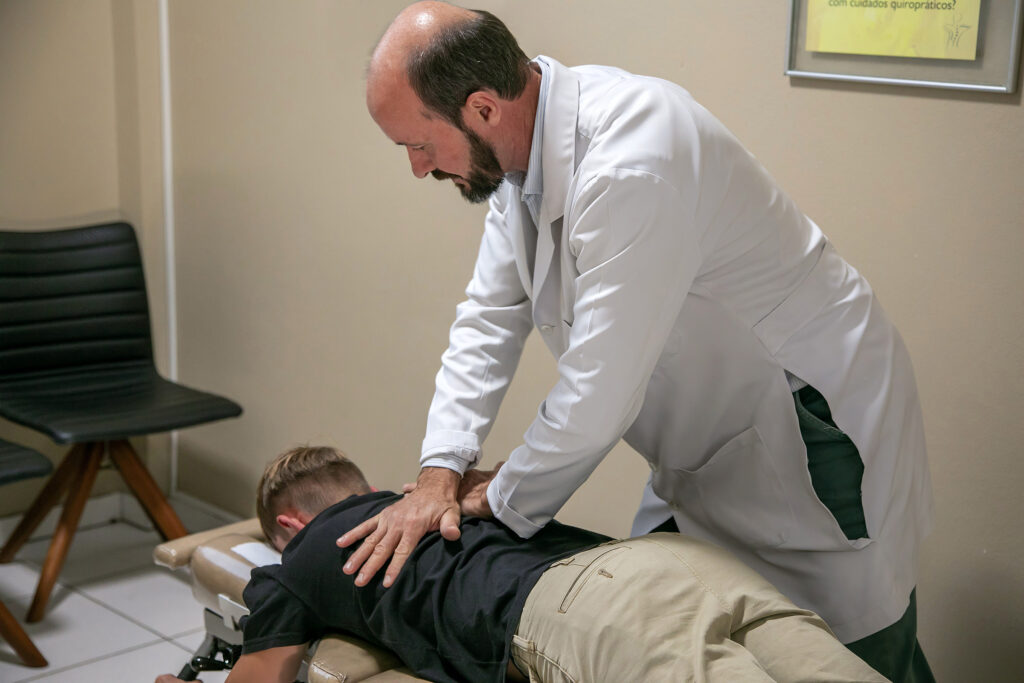
This too resulted from the work of discipleship. Joel Lippert, a chiropractor, spent two years learning biblical truths with Randy over cups of chimarrão (traditional green tea). As he witnessed God answer prayer—including his own prayer for a child—he placed his faith in Christ. He began using chiropractic as an outreach, even serving city council members and health professionals when other ministries were on hold during COVID lockdowns.
“[W]e apply chiropractic to physical care, understanding that patients often come with physical pain, but many also come with a history of spiritual problems,” Joel explained. “I integrate my work that we might bring them to Christ.”
Through the faithful, disciple-making efforts of believers, the Dois Irmãos church has grown to 50-60 members within the last three years.
“This is all for God’s glory,” Randy reflected. “We were not expecting to be where we are right now.”
Restoring Families Through Discipleship
A series of marriage crises opened doors for ministry among a different population: residents of Porto Alegre. Intending to plant a church in the city alongside two Brazilian couples, Lucas and Teresa Bair’s vision expanded when, within the same week, both the wives announced that they were separating from their husbands. Lucas and Teresa witnessed the toll of divorce on their community—and saw unique opportunities to represent Jesus to the hurting. Through biblical marriage counseling, they demonstrate a hope and love nonexistent in local spiritist religions.
“If we can help the Lord restore marriages and families, if we can help them become full-fledged followers of Jesus, that’s going to change the trajectory of generations,” Lucas explained.
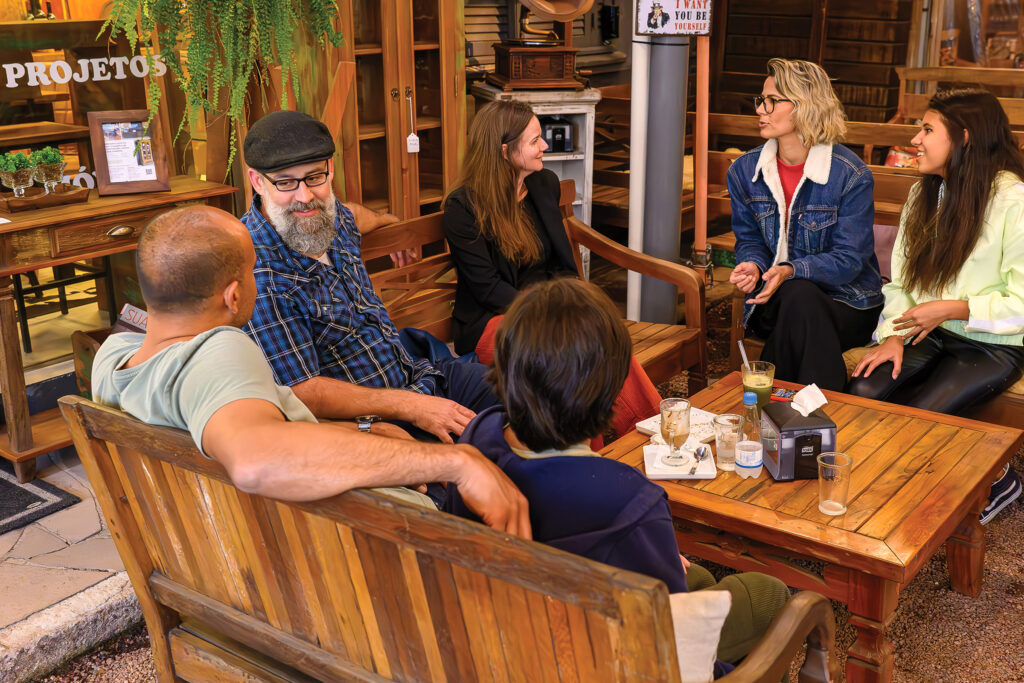
‘Everyone Deserves a Hangout’
Missionary Erin Wawro was strolling the campus of a Brazilian university one night when God impressed upon her heart, What about all these college students? Continuing down the street from the main entrance, she noticed a building plastered with “for rent” signs and wondered, Why not open a coffee shop as an outreach?
Renovating that space, Erin opened the Hangout in 2015. Since then, young adults have wandered in on weekday afternoons to snack between classes, play board games, or lounge on couches with friends. Erin leans against the counter, pouring coffee and dispensing biblical advice as a pseudo mom, sister, or counselor.
“This ministry is like a front-line first contact,” she said. “So many people here are so against religion. And it’s a huge success when they come in and decide not all religion is bad.”
The atmosphere of refuge has created interest in the gospel, inspiring some students to attend an evangelistic Bible study or the Logos church plant associated with the ministry. A few have trusted Christ and were baptized.
Regardless of where students are in their spiritual journey, they repeatedly highlight the Hangout’s influence on their lives. “Everyone deserves a Hangout,” declared one young man.
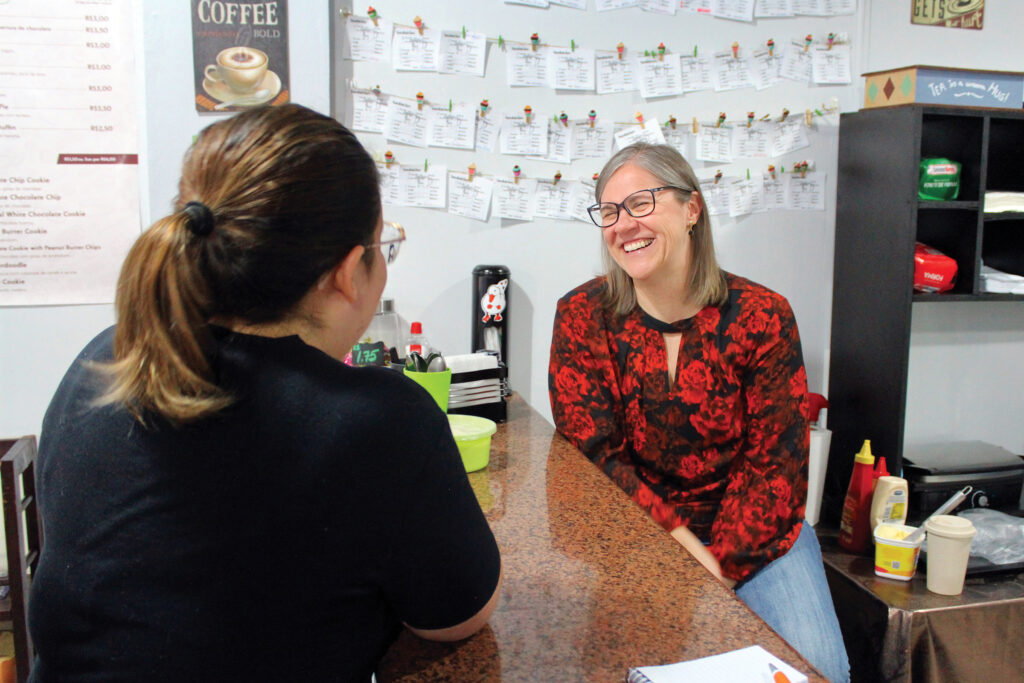
Training Leaders for Impact Beyond Brazil
Underlying each ABWE ministry in southern Brazil is the team’s deep desire to partner with, rather than replace, Brazilian church leaders. When Diego, now the national pastor in Dois Irmãos, confronted cultural differences as a Brazilian missionary from the north, the team took him under their wing.
“We feel it’s really important to see Brazilian leadership taking the lead and partner with them,” explained Randy. “As missionaries, we can support, encourage, and strengthen, and provide resources to see them move forward to accomplish their mission.”
The team’s bond with local workers does not end in Brazil but extends across the globe. ABWE maintains a close relationship with the Brazilian mission agency, Multi-Cultural Ministries Maranatha, which has sent over 30 Brazilian missionaries to Portuguese-speaking nations around the world.
Through the faithful ministry of the southern Brazil team, they have witnessed every stage in the missionary task—from initial-contact evangelism, to church formation, to empowerment of national leadership. Yet the work is just beginning.
“We need Brazilians to come work alongside us. We need Americans. We need others to reach this area,” urged Randy. “It’s really exciting when you see the fruit of your ministry. You might not see it right away, but it will come. And that’s our hope here.”
